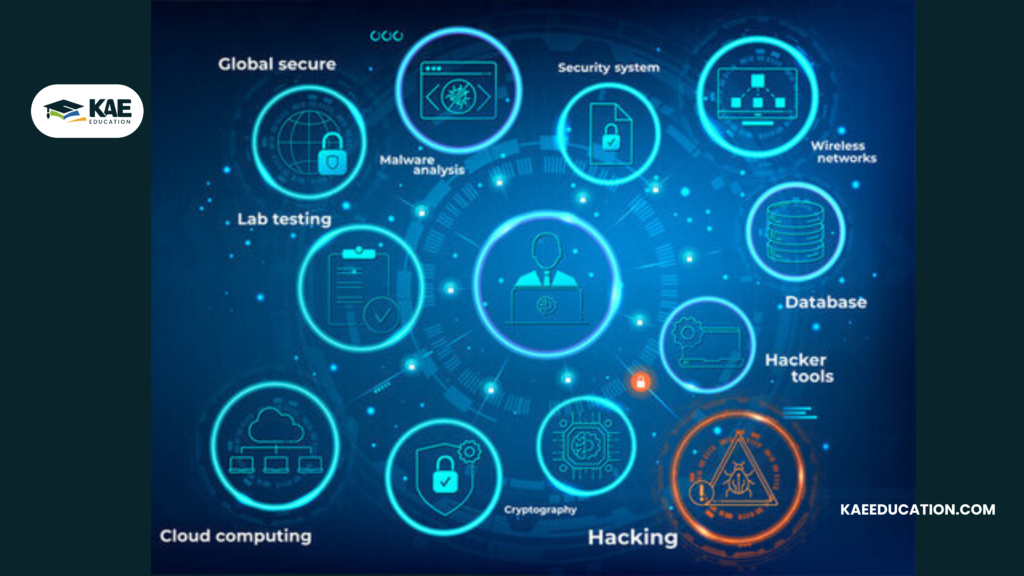How Ethical Hackers Defend the Technology We Use Every Day
As technology continues to advance, so do the threats that put sensitive data and systems at risk. Ethical hacking has emerged as a critical field in combating cyberattacks and securing digital infrastructures. Ethical hackers, often called “white hat hackers,” play a vital role in identifying vulnerabilities and safeguarding the technology we rely on daily.
What is Ethical Hacking?
Ethical hacking refers to the practice of testing systems, networks, and applications for security loopholes using the same techniques as malicious hackers. The key difference is that ethical hackers operate with permission and within legal frameworks to improve security, rather than exploit weaknesses.
Why is Ethical Hacking Crucial?
The unsung heroes of the digital era are Ethical hackers. They help organizations:
(1) Identify Vulnerabilities: Uncover potential weak points in systems before cybercriminals can exploit them.
(2) Prevent Data Breaches: By securing sensitive data, Ethical hackers minimize the risk of costly breaches.
(3) Ensure Regulatory Compliance: Many Industries require regular security audits, which Ethical hackers provide.
(4) Maintain Public Trust: Strong Cybersecurity measures protect an organization’s reputation and customer trust.
The Role of Ethical Hackers in Our Daily Technology
(1) Securing Online Transactions: Ethical hackers ensure that financial platforms like online banking and e-commerce sites are safe from cyber threats.
(2) Protecting Personal Data: They test the security of apps and websites to prevent identity theft and unauthorized access.
(3) Safeguarding IoT Devices: With the rise of smart devices, Ethical hackers ensure that connected systems remain secure.
(4) Improving Cybersecurity Policies: They provide insights that help organizations create robust security frameworks.

Future Demand for Ethical Hackers
By 2025, the global Cybersecurity market is projected to grow significantly, with Ethical hackers playing a pivotal role in the Industry. Factors driving this demand include:
(1) Increase in Cybercrime: Cyberattacks are becoming more frequent and sophisticated, necessitating skilled professionals to counteract them.
(2) Rapid Digital Transformation: As more Businesses move online, the need for Cybersecurity expertise grows.
(3) Shortage of Skilled Professionals: There’s a global talent gap in Ethical hacking, creating high-paying opportunities for trained individuals.
Skills Required for Ethical Hacking
To excel in Ethical hacking, professionals need a mix of technical and analytical skills, including:
(1) Proficiency in programming languages like Python and Java.
(2) Knowledge of network protocols and cybersecurity tools.
(3) Expertise in penetration testing and vulnerability assessment.
(4) A strong understanding of Ethical hacking frameworks and certifications, such as CEH (Certified Ethical Hacker).
How to Start a Career in Ethical Hacking
(1) Learn the Basics of Cybersecurity: Start with foundational courses in Cybersecurity concepts.
(2) Gain Hands-On Experience: Practice on Ethical hacking platforms like Hack The Box or TryHackMe.
(3) Earn Certifications: Popular certifications include CEH, Offensive Security Certified Professional (OSCP), and CompTIA Security+.
(4) Stay Updated: Cyber threats evolve constantly, so continuous learning is essential.
The Future of Ethical Hacking in 2025
The rise in Cyberattacks and the increasing reliance on technology make ethical hacking a future-proof career. By 2025, ethical hackers will be indispensable for protecting critical infrastructure, securing data, and ensuring the smooth functioning of technological ecosystems.
Ethical hacking is not just a job—it’s a mission to make the digital world safer for everyone. With exciting career opportunities and the chance to make a real difference, Ethical hacking is a field worth exploring.
Conclusion
Ethical hacking is the backbone of modern Cybersecurity, safeguarding the technology we use every day. As threats grow more sophisticated, the demand for skilled Ethical hackers will only increase. Consider pursuing a career in this exciting and influential sector if you have a strong interest in technology and solving problems.
Explore KAE Education’s Ethical Hacking Programs to kickstart your journey in this high-demand profession.
FAQs on Ethical Hacking
Ethical hacking involves identifying vulnerabilities in systems, networks, and software to enhance security, done legally and ethically.
It helps organizations prevent cyberattacks, protect sensitive data, and maintain compliance with security regulations.
Tools like Nmap, Metasploit, Wireshark, and Burp Suite are commonly used for penetration testing and vulnerability analysis.
A strong understanding of cybersecurity principles, programming languages, and certifications like CEH or OSCP is essential.
Yes, it’s a high-demand, high-paying field with significant growth opportunities, especially with the rise in cyber threats.
The demand for Ethical hackers is high in sectors like Government, IT, Healthcare, and Finance.
Salaries vary, but experienced Ethical hackers can earn six-figure incomes, with high demand globally.

